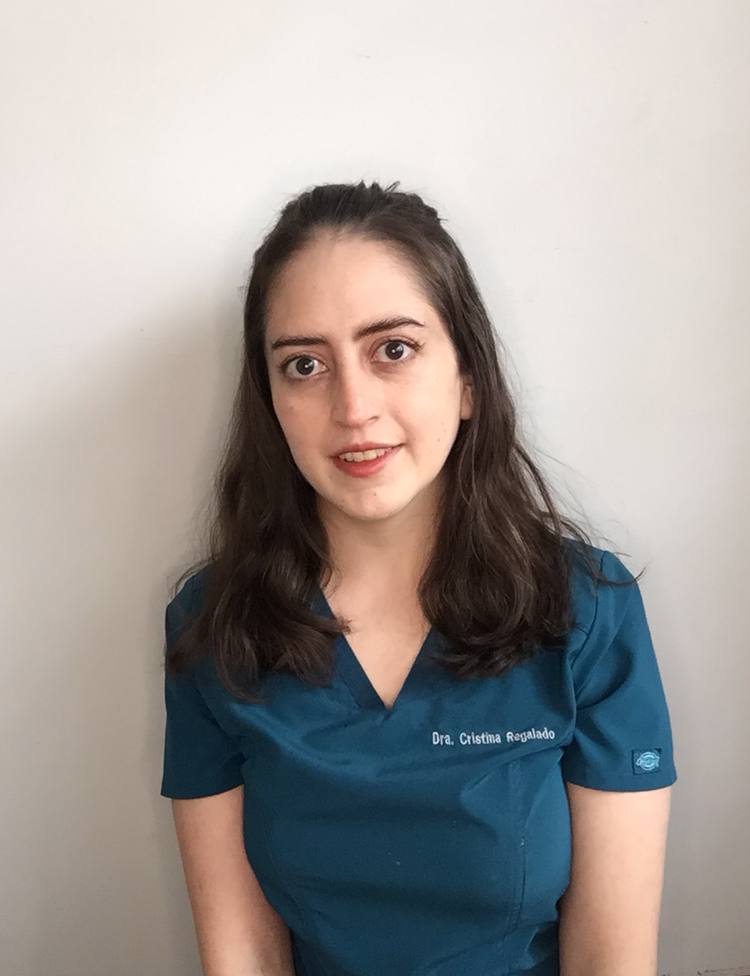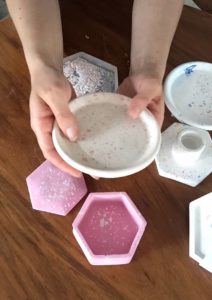
Dr Cristina Regalado experienced burnout in her last semester at University. In her own words, she felt hopeless, tired all the time, unmotivated and she even started questioning her career choice in the first place. She thought it would be temporary but the symptoms continued to persist throughout her first job until she went to therapy and was able to give her condition a name: burnout.
Join us to discover her experience and the amazing work she is doing on her Instagram account.
Dr Cristina Regalado is based in Quito, Ecuador. She graduated 7 years ago and was lucky enough to work on an amazing scientific project with seabirds in 2016 in the Galapagos. Since 2018 she’s had her own small practice and has been her own boss. Being spared from having to work on complicated hospitalizations and very emotionally challenging cases has really helped her to cope with professional stress.
During the pandemic lockdown, she started an Instagram account dedicated to mental health in the veterinary sector: @vetmentalhealth.
Why did you decide to have an Instagram account dedicated to the topic of #mentalhealth in veterinary medicine?
When I found out that veterinarians had the highest suicide rates among health workers, first I felt scared and then sad and that was because it all hit home.
People think that just because we work with animals we’re happy all the time. But we know that this isn’t really true. So I wanted my Instagram account to be an informative site where vet professionals would find helpful quotes, mental health advice and hear what others had to say about the issue.
How has your account been welcomed by the veterinary community?
Therapy can be expensive. Or it may feel overwhelming realizing you need a therapist or going to one for the first time. In this account, I share advice from my own therapist and things that helped me.
My main goal was for the community that followed @vetmentalhealth to somehow feel less alone by knowing that there are means and ways to ask for help.
It was met with great reception from colleagues, from people that I truly admire in social media. Vets that I don’t personally know reached out to entrust me with their thoughts saying that they felt less alone, so this is the best reward I could ever wish for.
So I’m guessing that you had personal or intimate experiences with burnout…
Definitely. My first burnout experience was during my last semester at university, during my internship. I thought it was temporary but when I finished and went to work in a new hospital afterwards I felt exactly the same: hopeless, tired all the time, I didn’t feel like myself. I was always working long hours, feeling unmotivated, even questioning myself about my career choice in the first place.
I didn’t know back then that this was burnout and that probably what I needed was a break.
Years went by before I went to therapy and learned that what I had experienced had a name: burnout.
There is nothing good in burnout, it takes a toll on your mental health. I’ve seen close friends suffering from it but luckily all of them also did therapy or took a break and have overcome it.
Do we vets have the root of the burnout problem in our personalities or is it the environment we work in?
I think it’s both – the environment and us. Working with animals is hard. It means taking care of a beloved family member that cannot directly communicate how they feel. So we have the big responsibility on our shoulders of having to be extremely intuitive about what is going on.
This can hit hard on our personalities as it’s very easy to feel attached and fall into compassion fatigue with every case we help because helping is our main goal. And we should be careful to set plenty of boundaries so we don’t fall into this vicious cycle of pressure, compassion fatigue, burnout.
It’s on us to set those limits, either in the workplace or for the people we surround ourselves with, and also with pet owners. Especially boundaries about self-respect and everything that comes with it.
Better mental health means better case solving and in the end, we’ll get a happy animal with a happy owner and feel happy with ourselves too.
How do you take care of yourself daily?
I do the basics, getting my 7 hours of sleep, I drink a lot of water, and try to exercise every day. I do Tae Bo. Recently I started meditating and also started gratitude journaling at the end of the day.
Art and crafting helped me a lot, I do resin casting and I love it. I try to hang out with friends or just talk to them on the phone, keeping up with how they are doing in life helps me a lot.
Going to therapy is also important and helped me get through hard times. And also staying in contact with my vet colleagues to check on each other! If it’s impossible to talk because of my schedule I just text them and check how they are feeling, because I truly appreciate it when they do that for me.
What simple measures should all veterinary practice owners put in place to help prevent burnout in their employees?
Managers should ensure a proper working environment, increase comfort in the workplace because staff sometimes spend more hours there than in their own homes.
It would be beneficial to provide a quiet rest area with healthy snacks, some music, with enough space to stretch or do yoga for example. Also enforcing and respecting schedules, promoting shift changes on time.
In one clinic I know, they spend 10 minutes of their weekly team meetings to review clinical cases, talking about the emotional side of the cases and how it has affected them in particular. This increases team bonding and is beneficial for their emotional health in general.
How do you see the evolution of the sector in terms of business models and professional well-being?
I like to think positively and I believe people are starting to acknowledge how important mental health in our sector is. If we have healthy minds we can do a better job. I think the business model is going to change in that way: prioritizing veterinarians’ health and mental wellbeing.
Because if we feel well we will perform better for our patients.
What do you feel is your big mission in life? And within the veterinary sector?
My soul is very connected to animals. I’m the happiest person on earth when a patient feels better or when I see animals being themselves, having fun. That’s the vet part that I love.
So I know my mission in life is to keep doing something for them and always related to animal wellbeing, even if I don’t see myself being a clinical vet forever.








